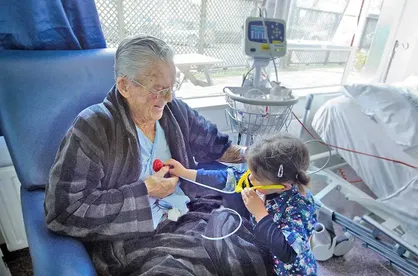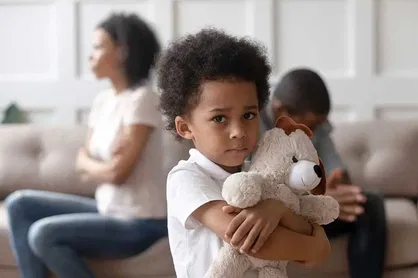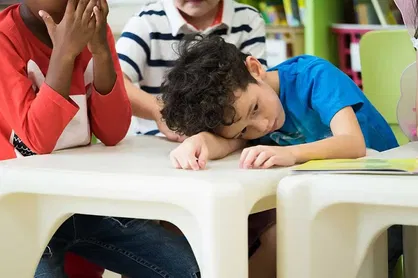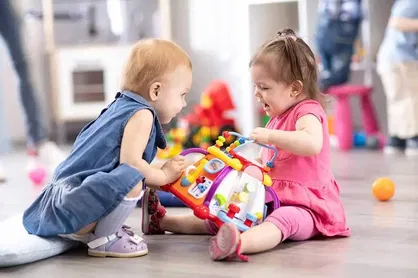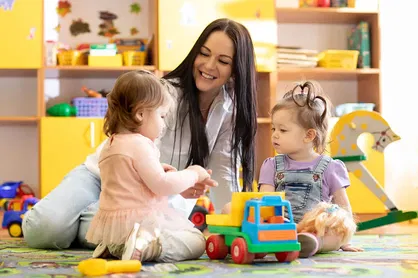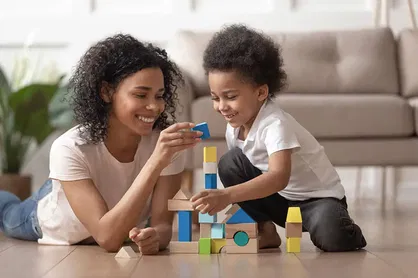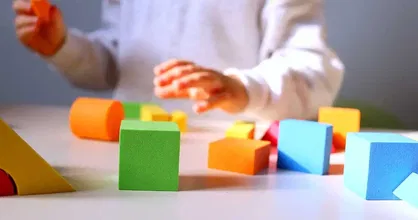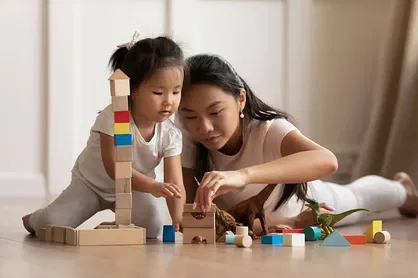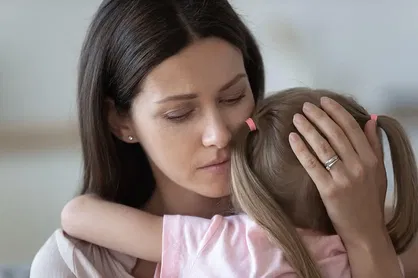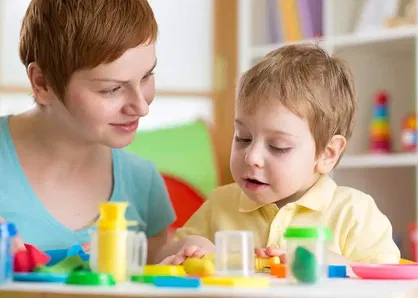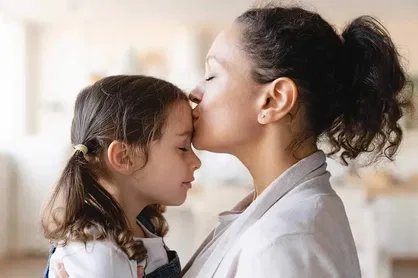Ways to Support Preschoolers Dealing with a Death in the Family
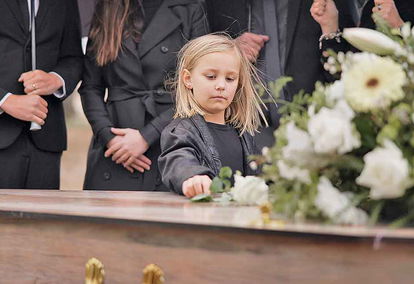
Death is never an easy subject to broach, even with adults, let alone preschoolers. Grief and loss are multifaceted processes that each person approaches differently. There are several key things to remember when discussing these topics with preschoolers.
Preschoolers are inexperienced in the area of death. Most have not lived long enough to have any prior experiences to draw upon. Thus, you are helping them lay the foundation blocks for how they will deal with death going forward.
It is crucial that you are honest with preschoolers and answer their questions. This not only builds a trusting relationship with you for future guidance, but it is the basis of the coping skills preschoolers will develop over time.
- Avoid metaphoric language like “she went to sleep” or “he passed away” because it can lead to misunderstanding and fear. A child may begin to fear going to sleep or other family members going to sleep because they think they may be dying too.
- Instead, use concrete language like “dead” or “died,” or explanative language like “his body stopped working.”
- Give clear, age-appropriate facts that distinguish death. Explain that death is an end to life on earth. This helps the preschooler to define death as something different than “going away for a time” and helps avoid other associations like “moved away” or other temporary situations.
Faith should be the source of our management of life. Beginning as early as preschool, it is vital that we teach preschoolers how our faith guides, sustains, explains, and shapes our navigation through all that life brings.
- Use concrete language when talking about faith. Avoid statements like “God took her to be with Him” or “He is in a better place.” Phrases like these lend a child’s mind to fear or hold anger toward God. They may question, “Is God going to take me too?” or “Why isn’t being with me good enough? Am I so bad?”
- Talk with the preschooler about how God intentionally formed humankind and established a cycle to life. Introduce the idea that God’s ways are not our ways because He knows so much more than we do (Isa. 55:8). With that knowledge, He has created a plan specific to each one of us that is “to prosper you and not to harm you, plans to give you hope and a future” (Jer. 29:11).
- Answer their questions. Be very intentional with your word choice. Preschoolers learn by asking questions. Take the time to answer whatever they ask. Remember they are processing events in very concrete terms with limited life experience. They may have seen or heard something that has them confused or perplexed. Your word choice is significant, so take the time to carefully select your words as you answer.
As always, an awareness of what a child is dealing with, being available for that child, and using a prayer-guided approach will help you circumnavigate pitfalls and steer to solid foundational ground as you help preschoolers dealing with stressful situations.
Gina Smith has been crazy about missions ever since she was a Sunbeam. One of her greatest joys in life is teaching people about Jesus and doing hands-on missions. She has been a missions educator since her early teens and has written for WMU for 18 years.
Disclaimer: The information shared on this page is not meant to diagnose or treat a mental health condition. We encourage you to follow up with your health-care provider and seek a mental health professional for individual consultation and care.
Blogs in this Series
Preschoolers, Families, and Serious Illness
Over half of adults in the US live with at least one chronic health condition. Given the prevalence of chronic and serious illness, it is likely you will have at least one preschooler in your class wh
Ways to Help Preschoolers Dealing with the Divorce of Parents
In the US, 40–50% of marriages end in divorce. It’s likely you will have one or more preschoolers in Mission Friends who are living with parents who are divorced or will soon be divorced. Divorce ofte
Supporting Preschoolers Whose Families Are Dealing with Stressful Situations
When we discuss mental health and preschoolers, we consider ways to help them grow in mentally healthy ways and learn to deal with difficult issues in age-appropriate ways. What can a preschool leader
Modeling Healthy Relationships for Preschoolers
Preschool leaders can help preschoolers learn to navigate the world of relationships as they model how healthy relationships work. Here are some ways to help preschoolers build stronger relationships
Supporting Preschoolers’ Social and Emotional Health
How preschoolers learn to relate, communicate, and function with others determines who they are becoming and how they see and understand the world. Their social and emotional development is what drive
Actions that Influence Positive Mental Health in Preschoolers
Mental health in preschoolers is a hot topic. Given post–COVID-19 dynamics, we are more aware that solid mental well-being at all ages is vital. Years of scientific research have taught us that not on
4 Tips to Foster Positive Mental Health in Preschool Environments
Fostering positive mental health in preschoolers involves many factors. We know that strong mental health is based on safety: physical safety, mental safety, and emotional safety. Developing and maint
Factors that Impact Preschoolers’ Mental Health
Preschoolers grow in all areas: physically, cognitively, socially, emotionally, and spiritually. Each of these areas has an impact on the mental health and well-being of preschoolers. Let’s look at fa
Mental Health Impact on Families: How to Help
According to the National Alliance on Mental Illness, one out of every five adults in the US experience a mental illness each year.¹ As we think of the millions of people that statistic represents, co
Mentally Healthy in the Preschool Years
We tend to think of the first few years of a child’s life as a happy time with no worries. We may think of childhood as being free from the cares of this world. Yet, in reality, this often isn’t the case.
The Mental Health of Preschoolers and Families
Healthy bodies and healthy minds. That is what we want for our preschoolers as they grow. We make sure preschoolers eat healthy foods, place limits on unhealthy foods, and ensure they get the sleep ne
